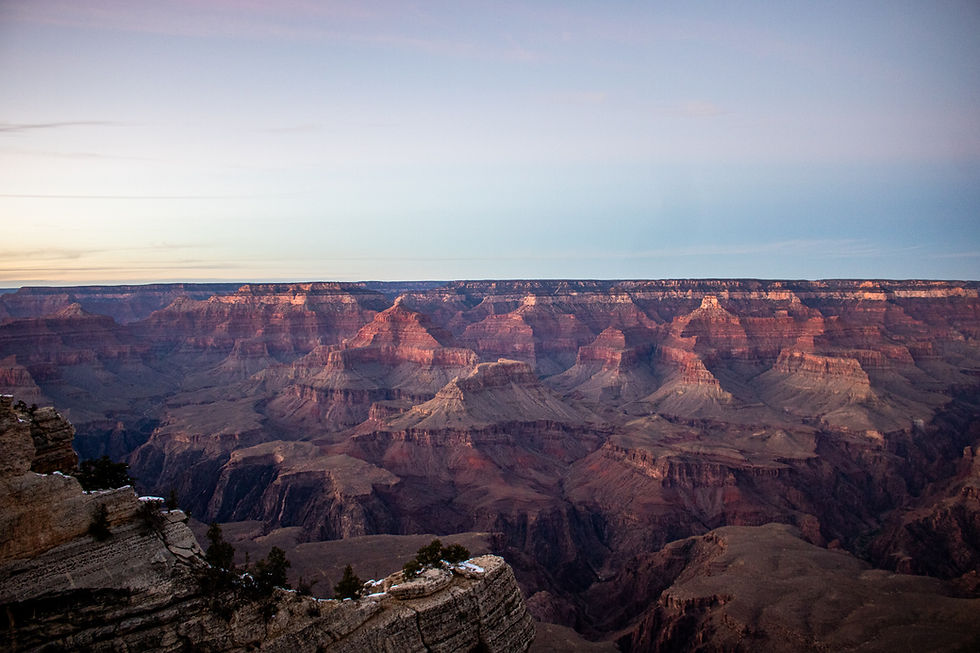How personal experiences impact our environmental beliefs
- Taylor Berthusen
- Sep 14, 2020
- 3 min read
Whether we like to believe it or not everyone has a specific environmental belief system. A belief system that shapes the way we see the natural world. Most people haven't given much thought to what particular beliefs they have, and may even consider us to be completely separate or detached from the natural environment.
As a part of the environmental belief system comes fully formed ideologies. An ideology can be defined as a way of thinking about the natural world in which a person uses to justify actions towards it. Ideologies represents a relationship to the land and its creatures, and guides the way we act towards it. Some factors that might influence our own ideologies would include, childhood experiences, a sense of place, and historical and cultural contexts.
As a kid I was born and raised in rural Iowa. A town made up of about 1,600 people. My dad, (who had also lived in this town his entire life) when he was young earned his Eagle Scout badge through Boy Scouts of America. Because of his love for the environment, he instilled that in his kids as well. I have very vivid memories of him taking me through the woods and down to the river. Along the way he would stop and tell me about specific plants and animals we saw. He would specifiaclly remind me to stay away from the Stinging Nettle, but of course I managed to get caught up in it more than once. (And I still till this day can't seem to identify the plant and recently got stung by it over the summer again.) At night my dad; gazing at the stars would point out the constellations, while I danced around capturing fireflies in a mason jar.

Later in life we moved to phoenix and I ended up getting my license at 16. With this new sense of freedom and independence my love for nature really began to take off. At 16 years of age, I was driving across the state to find some remote canyon to free climb or driving to find the next tallest mountain to summit. My thirst for adventure hasn’t stopped since and I don’t think it’s going to anytime soon. My environmental experiences and beliefs I can contribute coming a lot from my dad, without his influence and love for the environment in my life, I truly believe my ideologies and values would look a lot different today.
Because I have travelled so much and seen so many beautiful places, mostly in Arizona, but also around the world, I cannot commit to choosing only having “one” sense of place. I believe as humans we get connected spiritually and emotionally to many places in life. A person’s sense of place might be the mountains, a rushing stream, maybe an inner-city park near their house. For me it’s the Sonoran Desert, and now quickly becoming Flagstaff. A sense of place is so important, not only for the development of our belief systems but also for the protection of the places we feel attached too.

Historical and cultural contexts have probably the biggest impacts on our environmental ideologies today. For years nature was thought of something to be “conquered” With rampant utilization of natural recourses created a distancing of humans from creation and a fear of it. For a long time nature was seen as unknown places of dread and horror. The term “bewildered” means one who is lost, confused, and where nothing is predictable. This Ideology came abundantly clear that nature was an unlimited source of opportunity with recourses up for taking. Overall, our current belief systems stem from years of this deeply bedded beliefs and cultural practices. It appears eminent that large organizations and leaders mainly have the control from this dominated belief system, Our sense of place as well as childhood experiences all play a role in how we view the natural world and all together influence our worlds belief system.
Now that we have a good understanding on how our ideologies are formed and where they originate from, I want to discuss the Ideology that resonates the most within my own beliefs. I would say that ideology would be preservationism.
Preservationism is very close to conservationism in regards to conserving resources for humans to use and enjoy in the present and future, but it goes a step beyond to preserve resources for aesthetic value. Preservationism takes into account the natural beauty, wonder and awe of a place. They tap into the majestic grand feelings of the romantic aesthetic.
Preservationalist’s also believe that nature can be religious as well. Many places in the wilderness are known as sacred or spiritual where humans could encounter a “holy” space. I also agree with this statement as a strong Christian. I always feel the closest with God when I’m in his creation.
word count; 810


Comments